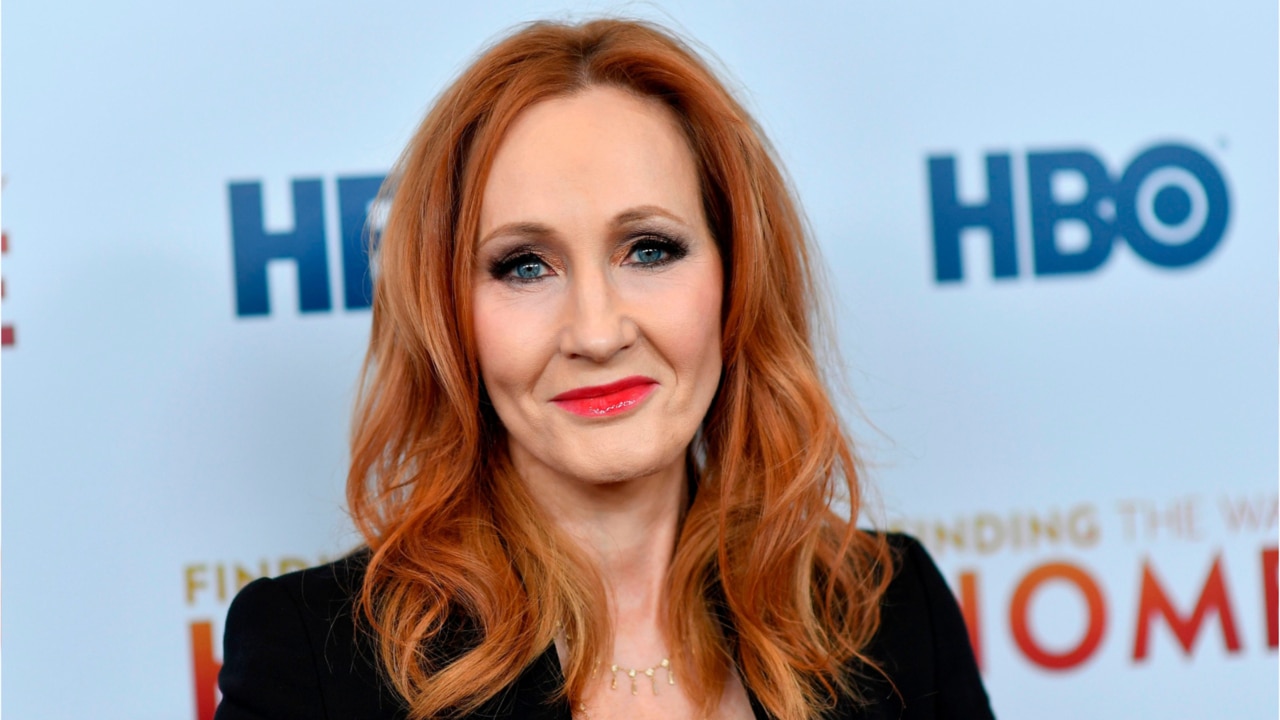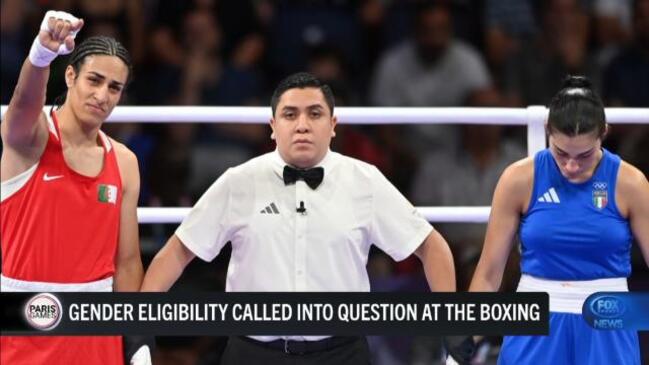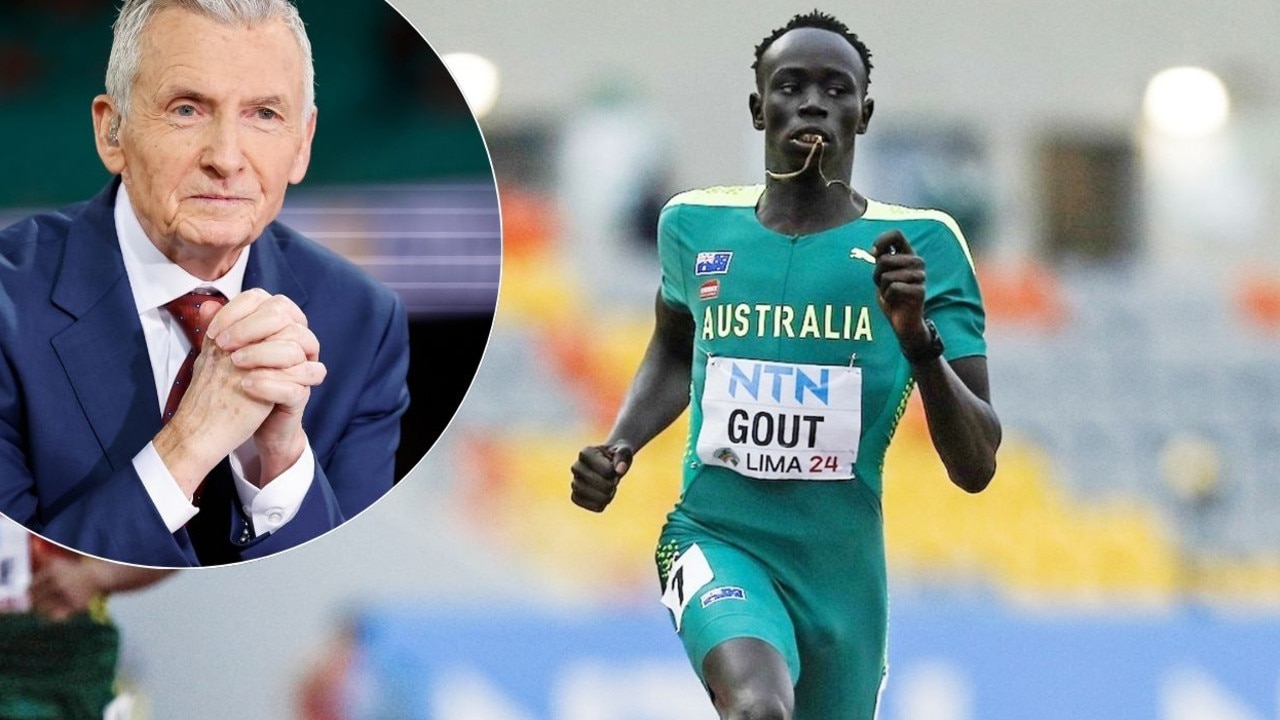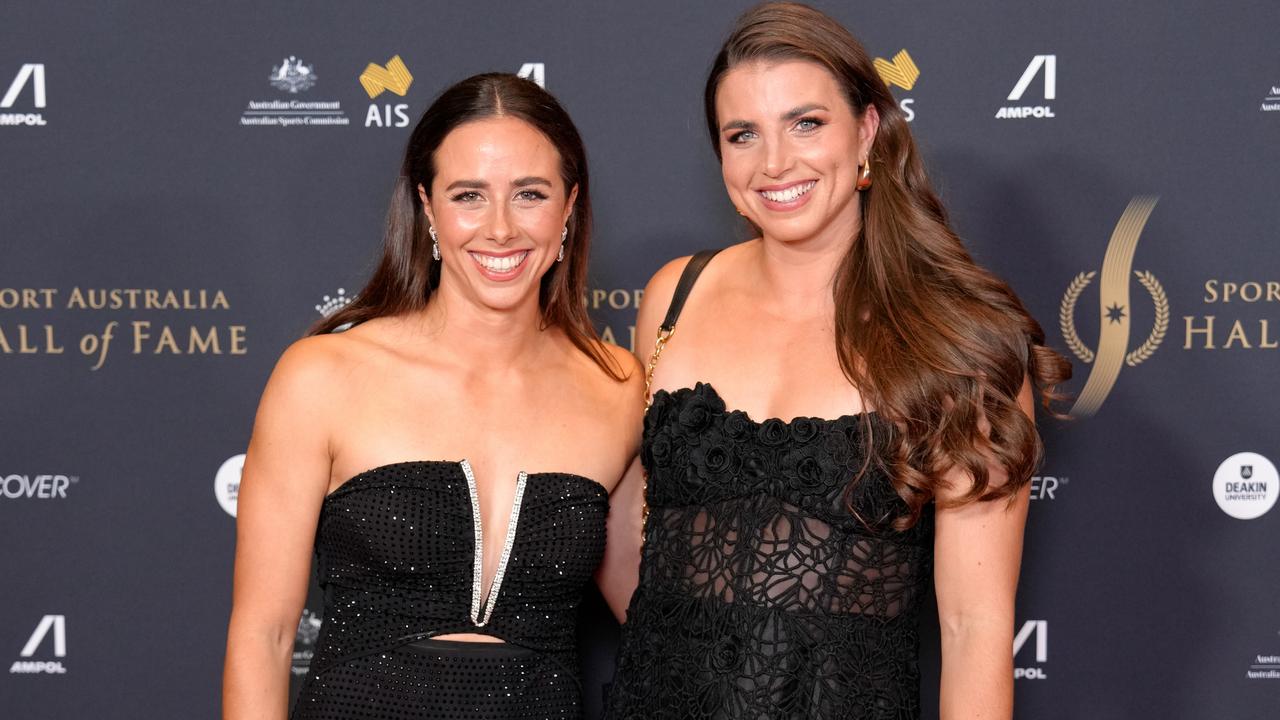Paris Olympic officials on ropes over fight
Hungarian boxer Anna Luca Hamori has taken up the fight for protecting women’s sport ahead of her controversial bout with genetically male Algerian Imane Khelif on Saturday.

Hungarian boxer Anna Luca Hamori has taken up the fight for protecting women’s sport ahead of her controversial bout with genetically male Algerian Imane Khelif on Saturday, as the International Olympic Committee put discrimination and due process ahead of athlete welfare by ignoring the physical harm Italian Angela Carini experienced in her 46-second smashing by the intersex competitor.
“If she or he is a man, it’ll be a bigger victory for me if I will win,” Hamori said on Friday (AEST). “I’m not scared. Let’s do it.”
The IOC publicly ignored the egregious moment of the Paris Olympics when Carini had her nose smashed in by Khelif, who has failed two gender tests.
“Until the end I fought with blood in my eyes,’’ said Carini, having crouched in the ring sobbing and holding her broken face. Two right punches ended her Olympic dream.
“It’s not fair. I had to safeguard my life, I was hit so hard I couldn’t breathe any more.’’
The 46 seconds of drama at the North Paris Arena failed to break through to Olympic powerbrokers who reinforced their position, pandering to ideologues rather than protect the female sport category.
Instead it was left to feminists such as author J.K. Rowling, former tennis champion Martina Navratilova and even Italian Prime Minister Giorgia Meloni to call out the profound injustice of biological males beating up a woman in the name of sport.
Rowling tweeted: “A young female boxer has just had everything she’s worked and trained for snatched away because you allowed a male to get in the ring with her. You’re a disgrace, your ‘safeguarding’ is a joke and #Paris24 will be forever tarnished by the brutal injustice done to Carini.” Navratilova decried the scenes as “deplorable”.

Elon Musk amplified a tweet by US swimmer Riley Gaines, who lost a competition to trans swimmer Lia Thomas. Gaines said “men don’t belong in women’s sports”.
Even the UN has weighed in on the issue, putting pressure on Olympic president Thomas Bach to intervene. Reem Alsalem, the UN Special Rapporteur Violence Against Women and Girls, said Carini and other female athletes should not have been exposed to such physical and psychological violence based on their sex.
Australian senator Claire Chandler said many countries, including Australia, allowed people to replace their sex on a passport with a “preferred gender”, expressing incredulity that the IOC was relying on passports to “allow males to punch women in the face”.
In two pages of an extraordinary response six hours after the one-sided fight, the IOC referenced human rights, discrimination and even due process without any mention of Carini, her injuries, or the outrage of female boxers fearing serious injury, or worse, in the ring every time they face one of the two “XY” boxers. These boxers, Algeria’s Khelif and Taiwan’s Lin Yu-ting, are not transgender, but boxing officials said they had male XY chromosomes and had been masquerading as women.
Both were previously withdrawn from international competition because they had failed gender tests in 2022 and 2023.
The IOC, which runs boxing at the Olympics because of political battles with the International Boxing Association, pasted rules from previous Olympics and were satisfied of the boxers’ gender because they were women in their passports.
Female competitors have repeatedly raised safety issues.

Australian boxing caption Caitlin Parker had called for XY chromosome athletes to be banned from female combat sports, worried a woman could be seriously hurt; Irish Olympic champion Kellie Harrington said she would withdraw if faced against one of the XY boxers.
Senator Chandler said the IOC, and Australian sporting bodies who hadn’t enacted stricter criteria akin to international counterparts, had buried their heads in the sand.
In 2022, Senator Chandler introduced a private members bill to amend the Australian Sports Commission and Sex Discrimination acts to make it legal to exclude persons of one sex from participation in any sporting activity intended for persons of a different sex.
An Australian Sports Commission spokesman said the body’s non-binding guidelines for gender diverse inclusion in sport acted as a resource for each sporting code to devise their own policy. The ASC’s “clearly state” that cis-gender female athletes “should not be disadvantaged”, but that high-performance sport needed to “recognise” society’s gender diversity.
Intersex Human Rights Australia executive director Morgan Carpenter criticised the “hateful” rhetoric aimed at Ms Khelif, saying that “irrespective of the (competitor’s) actual sex characteristics” athletes should be allowed to compete in their “birth-observed, birth-assigned sex”.
Additional reporting: agencies



